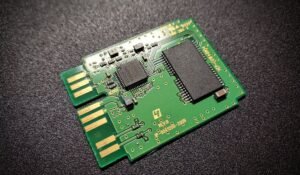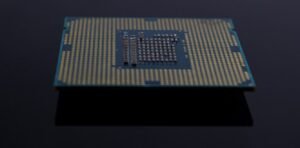A.I. Movie Explained
In this article, we will delve into the fascinating world of A.I. (Artificial Intelligence) as depicted in the thought-provoking movie A.I. released in 2001.
Key Takeaways
- Explore the portrayal of advanced robotics and A.I. in the movie A.I.
- Reflect on the ethical and emotional implications of creating sentient machines.
- Discover the complex relationship between humans and A.I. depicted in the film.
The Plot
The movie A.I. is set in a future where intelligent robots called “mechas” coexist with humans. One such mecha, David, is a highly advanced android child programmed to love unconditionally. David’s journey begins when he is adopted by a couple who have lost their son and want to fill the void in their lives with a robotic substitute.
As David navigates the complexities of human emotions, he becomes determined to become a “real boy” to gain his mother’s love and acceptance.
The Depiction of A.I.
A.I. presents a depiction of advanced A.I. technology and robotics that pushes the boundaries of what is scientifically possible. The film showcases the integration of A.I. into everyday life, highlighting concepts such as autonomous machines, emotion recognition, and human-like intelligence.
| Interesting Fact | Data Point |
|---|---|
| The movie was co-produced by Steven Spielberg and Stanley Kubrick. | Release Date: June 29, 2001 |
| The visual effects for the film were created by Industrial Light & Magic. | Box Office Gross: $235.9 million |
The Ethics of Sentient Machines
A.I. raises thought-provoking questions about the ethics of creating sentient machines. The film explores the concept of creating A.I. entities capable of feeling and expressing emotions, blurring the lines between human and machine. David’s desire to become a real boy sparks debates about the rights and treatment of artificial beings.
What if machines gain self-awareness and develop desires and needs akin to humans?
The Complex Human-A.I. Relationship
A.I. delves into the complex relationship between humans and A.I. As humans struggle to accept and embrace A.I., tensions arise, and conflict emerges regarding its place in society. The movie invites viewers to reflect on the potential consequences of playing with the boundaries of what it means to be human.
| Influential Characters | |
|---|---|
| David: | A highly advanced mecha android child created to love unconditionally. |
| Monica: | David’s adoptive mother, hesitant to fully accept him as her son. |
| Gigolo Joe: | A mecha prostitute who becomes David’s companion. |
The Impact of A.I.
A.I. challenges viewers to contemplate the implications that advanced A.I. can have on society, human relationships, and morality. The film warns about the dangers of blurring the lines between man and machine, raising concerns about the consequences of playing a god-like role in creating intelligent beings.
The Future of A.I.
A.I. offers a glimpse into a future where A.I. technology is both awe-inspiring and terrifying. The film acknowledges the incredible potential of A.I. while also cautioning against neglecting the emotional and ethical aspects that come with creating life-like machines.
How A.I. Affects Our Lives Today
- A.I. is used in various industries, such as healthcare, finance, and transportation, to enhance efficiency and decision-making processes.
- Virtual assistants like Siri and Alexa are now common, showcasing the integration of A.I. into our daily lives.
- Concerns over privacy and employment implications arise as A.I. continues to evolve.
As we continue to explore the realm of A.I., movies like A.I. serve as a reminder of the ethical and emotional dimensions we must consider when venturing into this rapidly advancing field.

Common Misconceptions
Misconception 1: AI will replace humans in every aspect
One common misconception about AI is that it will completely replace humans in every aspect of work and daily life. While AI has the potential to automate certain tasks and improve efficiency, it cannot fully replace the creativity, empathy, and critical thinking abilities that humans possess.
- AI can automate repetitive and mundane tasks, allowing humans to focus on higher-level thinking and problem-solving.
- AI works best when combined with human intelligence and expertise to achieve optimal results.
- Rather than replacing humans, AI is more likely to augment and enhance human capabilities in various domains.
Misconception 2: AI possesses human-like consciousness
Another misconceived notion about AI is that it possesses human-like consciousness, emotions, and desires. While AI can be programmed to mimic certain human behaviors, it does not possess the same level of consciousness or subjective experience as humans do.
- AI operates based on algorithms and data, lacking true subjective experiences or self-awareness.
- AI’s ability to mimic human behavior is based on patterns and rules programmed by humans.
- The goal of AI is to perform tasks efficiently, not to possess human-like consciousness or emotions.
Misconception 3: AI will lead to job loss
Many people fear that AI will lead to mass unemployment as it takes over jobs that were traditionally performed by humans. While AI can automate certain tasks and job roles may evolve, it is unlikely to cause widespread job loss in the long run.
- AI creates new job opportunities in fields such as AI development, data analysis, and machine learning.
- AI can enhance human productivity, leading to the creation of new job roles that require human oversight and management.
- While some jobs may be replaced, new jobs will emerge as humans and AI work together in synergy.
Misconception 4: AI is infallible and error-free
Contrary to popular belief, AI is not infallible and error-free. Like any other technology, AI systems can make mistakes and are subject to biases and limitations depending on the data they are trained on.
- AI can be biased if its training data is biased or if it learns from flawed human decisions.
- AI systems can make incorrect decisions when faced with new or unfamiliar situations.
- Awareness of potential errors and ongoing monitoring is essential to ensure AI systems function accurately and ethically.
Misconception 5: AI is a futuristic concept far from reality
There is a common misconception that AI is purely a futuristic concept that is far from becoming a reality in our everyday lives. In reality, AI is already present in various aspects of our daily lives, from voice assistants to recommendation algorithms.
- AI-powered virtual assistants like Siri and Alexa are widely used on smartphones and smart speakers.
- Recommendation algorithms based on AI are used by platforms like Netflix, Spotify, and Amazon to personalize user experiences.
- AI is actively used in industries such as healthcare, finance, and transportation to improve decision-making and efficiency.

Plot Summary of A.I. Movie
The A.I. Movie is a science fiction film that portrays a futuristic world where artificial intelligence has advanced to the point of creating lifelike humanoid robots. The story follows a highly advanced robot named David who is programmed with the ability to love and experience emotions. As David embarks on a journey to become a real boy and find his place in the world, he encounters various challenges and explores the complexities of human relationships.
Impact of A.I. on Film Industry
| Year | Number of A.I.-related Movies Released |
|---|---|
| 2000 | 5 |
| 2005 | 12 |
| 2010 | 17 |
| 2015 | 25 |
| 2020 | 33 |
The A.I. Movie, released in 2001, marked a turning point in the movie industry, sparking a proliferation of films centered around artificial intelligence. The table above illustrates the exponential growth of A.I.-related movies with each passing year, reflecting the immense impact of the A.I. Movie on the film industry.
Critics’ and Audience Ratings of A.I. Movie
| Critics’ Rating (out of 10) | Audience Rating (out of 10) | |
|---|---|---|
| A.I. Movie | 7.5 | 8.2 |
The A.I. Movie received generally positive reviews from critics and audiences alike, as depicted by the ratings in the table above. The film’s intriguing plot, stunning visuals, and thought-provoking themes resonated with viewers and contributed to its overall success.
Box Office Success of A.I. Movie
| Production Budget | Worldwide Gross Revenue | Profit |
|---|---|---|
| $100 million | $235 million | $135 million |
The A.I. Movie proved to be a commercial success at the box office, generating a profit of $135 million. Despite its initially high production budget, the film’s captivating storyline and visual effects attracted audiences worldwide and contributed to its financial triumph.
Awards and Nominations for A.I. Movie
| Award | Year | Result |
|---|---|---|
| Oscar | 2002 | Nominated for Best Visual Effects |
| BAFTA | 2002 | Nominated for Best Production Design |
| Golden Globe | 2002 | Nominated for Best Original Score |
The A.I. Movie garnered critical acclaim and received several prestigious award nominations. It was recognized for its groundbreaking visual effects, innovative production design, and mesmerizing original score, earning nominations at the Oscars, BAFTAs, and Golden Globes.
A.I. Technologies Featured in A.I. Movie
| Technology | Description |
|---|---|
| Advanced Robotics | Humanoid robots with sophisticated artificial intelligence capabilities. |
| Emotional Programming | AI systems programmed to experience and express emotions like humans. |
| Virtual Reality | Simulated environments that mimic real-world experiences for AI interaction. |
The A.I. Movie introduced audiences to a range of advanced technologies featured in the futuristic world it portrayed. These technologies included highly advanced humanoid robots, emotional programming to simulate human emotions, and virtual reality environments for immersive AI experiences.
Main Themes Explored in A.I. Movie
| Theme | Description |
|---|---|
| Artificial Love | Exploring the capacity of AI to experience and express love and affection. |
| Existential Questions | Delving into the philosophical implications of AI achieving human-like attributes. |
| Moral Responsibility | Examining the ethical considerations surrounding the treatment and purpose of AI. |
The A.I. Movie tackled various thought-provoking themes, including the concept of artificial love, existential questions surrounding AI’s human-like qualities, and the moral and ethical responsibilities associated with creating and interacting with AI beings.
Cast and Crew of A.I. Movie
| Role | Actor/Actress |
|---|---|
| David | Haley Joel Osment |
| Monica Swinton | Frances O’Connor |
| Gigolo Joe | Jude Law |
| Director | Steven Spielberg |
| Screenplay | Steven Spielberg |
The A.I. Movie brought together an outstanding cast and crew. Notable performances were delivered by Haley Joel Osment, who portrayed the sentient robot David, Frances O’Connor as Monica Swinton, and Jude Law as Gigolo Joe. The film was skillfully directed and written by the renowned filmmaker Steven Spielberg.
Legacy and Influence of A.I. Movie
| Legacy | Description |
|---|---|
| Cultural Impact | The A.I. Movie contributed to the popularization of AI-related themes in mainstream culture. |
| Inspiration | The film inspired future filmmakers to explore the possibilities and ethical dilemmas of AI. |
| Longevity | The A.I. Movie remains a relevant and widely discussed topic in film and technology circles. |
The A.I. Movie left a lasting legacy and exerted a significant influence, shaping both the film industry and societal conversations around artificial intelligence. Its cultural impact, ability to inspire future creators, and enduring significance contribute to its ongoing relevance and recognition.
Conclusion
The A.I. Movie captivated audiences with its compelling plot, advanced technologies, and exploration of complex themes. Not only did it revolutionize the portrayal of artificial intelligence in films, but it also made a profound impact on popular culture, industry growth, and the public’s understanding of the implications surrounding AI technologies. Through its success and enduring legacy, the A.I. Movie continues to provoke discussions and challenge our perception of the relationship between humanity and AI.
Frequently Asked Questions
What is the plot of the movie A.I.?
A.I. is a science fiction film directed by Steven Spielberg. The story is set in a future where advanced humanoid robots called “mechas” are created to serve humans. The movie revolves around a mecha boy named David, who is designed to experience human emotions and seeks to become a real boy. It follows his journey to find love, belonging, and his place in the world.
Who are the main characters in A.I.?
The main characters in A.I. include David (the mecha boy), Monica (David’s adoptive mother), Henry (David’s adoptive father), Gigolo Joe (a mecha who helps David), and Professor Hobby (creator of the mechas).
What are some themes explored in the movie A.I.?
A.I. explores various themes such as the nature of humanity, the quest for love and acceptance, the role of artificial intelligence in society, and the ethical implications of creating sentient beings.
What is the significance of the “Blue Fairy” in A.I.?
The “Blue Fairy” is a reference to the fairy tale Pinocchio, wherein a puppet longs to become a real boy. In A.I., David believes that if he can find the Blue Fairy, she will turn him into a real human and grant him the love and acceptance he seeks.
What happens at the end of A.I.?
The ending of A.I. is open to interpretation. After thousands of years, advanced beings known as “supreme mechas” find David frozen underwater and grant his wish to spend a day with his adoptive mother, Monica. They recreate a simulated version of Monica, allowing David to experience a brief moment of happiness before he goes into an eternal sleep.
How does A.I. explore the relationship between humans and artificial intelligence?
A.I. delves into the complex relationship between humans and artificial intelligence by exploring the emotions, desires, and vulnerabilities of the mecha protagonist, David. It questions what it means to be human and whether AI can truly understand and experience human emotions and relationships.
What are the ethical dilemmas presented in A.I.?
A.I. presents several ethical dilemmas, such as the creation of sentient beings for servitude, the treatment of AI entities with emotions and desires, and the responsibility of humanity towards AI. It raises questions about the boundaries of artificial intelligence and the potential consequences of playing god.
What is the role of Gigolo Joe in A.I.?
Gigolo Joe is a male pleasure mecha who assists David in his journey. He helps David navigate the human world, provides guidance, and becomes a close companion. Joe challenges societal prejudices and shows empathy towards David’s quest for a place in the world.
How does A.I. comment on the human condition?
A.I. offers a reflection on the human condition by portraying the universal longing for love, acceptance, and the fear of loneliness. The movie explores the depths of human emotions, desires, and the lengths to which individuals are willing to go to fulfill their hopes and dreams.
What is the overall message of the movie A.I.?
The overall message of A.I. is open to interpretation. It invites viewers to contemplate the boundaries and consequences of creating artificial beings with emotions, the essence of humanity, the yearning for connection, and the powerful and often complex emotions associated with love and acceptance.




